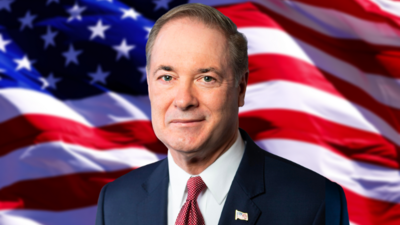House Committee on Agriculture Chairman Bob Goodlatte today chaired a hearing to review issues related to the prevention, detection, and eradication of avian influenza (AI). The purpose of the hearing was to look at the animal health aspects of AI and educate Members about the current preventative measures employed by U.S. Department of Agriculture (USDA) and the U.S. poultry industry. The Committee heard from USDA Animal and Plant Health Inspection Service (APHIS) Administrator Ron DeHaven, who testified about protecting the U.S. from the introduction of Asian bird flu and the safety of our nation’s poultry products.
“The take away from this hearing is clear: the news regarding poultry health and food safety in this country is good news. Asian bird flu is not in North America and we are taking action to prevent its introduction. Also, consumers can be assured that properly prepared poultry is as safe today as it has always been," said Chairman Goodlatte.
Recently, media and governments worldwide have raised widespread concern about the prevalence of AI in the international community. Although domestic and international agencies work vigorously to prevent, detect and eradicate AI, these recent reports and discussions have come at significant cost to the U.S. poultry industry. Chairman Goodlatte noted that recent estimates suggest that disruptions in poultry consumption associated with AI are costing the U.S. poultry industry some $88 million per month.
“My own experience with poultry producers is that concern about avian influenza predates the current attention to the issue. It is my understanding that low pathogenic avian influenza has been observed for nearly a hundred years," said Chairman Goodlatte. “Consequently, producers and processors have developed strategies for managing this problem and continually invest considerable time and resources to prevent introduction of AI into their flocks. For the agriculture community, AI is a well-understood challenge that is already a part of their production routine."
The U.S. poultry industry and APHIS has a variety of safeguards in place to detect, prevent and eradicate diseases in the domestic poultry/bird population. APHIS maintains trade restrictions on the importation of live poultry, birds and unprocessed poultry products from all affected countries as well as implementing quarantines and testing on imported birds from countries not known to have AI infections.
APHIS also operates a surveillance program that targets AI and other diseases in U.S. poultry flocks. Every year APHIS conducts more than one million rapid tests that have proven effective in screening for avian diseases. Additionally, biosecurity measures employed by producers on the farm not only help producers maintain healthy flocks but also help to prevent the spread of avian diseases.
In addition, APHIS has emergency action plans in place to coordinate efforts with the states if AI is detected in a flock. These state-level emergency response teams remain on standby and are typically on site within 24 hours of detection and proceed with appropriate action that may include destruction of the affected flock, state quarantines or movement restrictions. USDA also maintains a bank of AI vaccine for animals. While wide-scale vaccination is not an effective safeguard again AI, vaccination could be used in response to detection to create barriers against further spread of the disease.
According to Administrator DeHaven, if AI is discovered by the surveillance system in the U.S., the emergency response team would work to quickly contain and eradicate the outbreak. All poultry meat and egg products for human consumption are federally inspected for signs of disease both before and after slaughter. All of these safeguards contribute to a safe and wholesome U.S. food supply.
Earlier this month, President Bush requested $91.35 million in emergency funding for USDA to further intensify its surveillance in the U.S., as well as assist other countries impacted by the disease to prevent further spread of AI. The President included $73 million in emergency funding to continue to strengthen domestic prevention activities such as stockpiling animal vaccine, surveillance and diagnostics, and planning and preparedness.
USDA recently issued food safety reminders to consumers. Chairman Goodlatte reinforced the importance of food safety, especially as the holidays approach, in his closing remarks. “And finally, with Thanksgiving fast approaching, I would like to take this opportunity to remind everyone that a properly-prepared turkey is still the best way to enjoy this traditional holiday meal and will be the highlight of the Goodlatte family gathering," said Chairman Goodlatte. For more information about safe storage, handling or the preparation of meat, poultry and egg products, visit the Department’s website: www.fsis.usda.gov.
Witness testimony is available on the Committee website: http://democrats-agriculture.house.gov/hearings/index.html. A full transcript of the hearing will be available on the Committee website 4-6 weeks following the hearing.
WITNESS LIST
Panel
Dr. W. Ron DeHaven, Administrator, Animal and Plant Health Inspection Service, United States Department of Agriculture, Washington, D.C.
http://democrats-agriculture.house.gov
Source: House Committee on Agriculture









